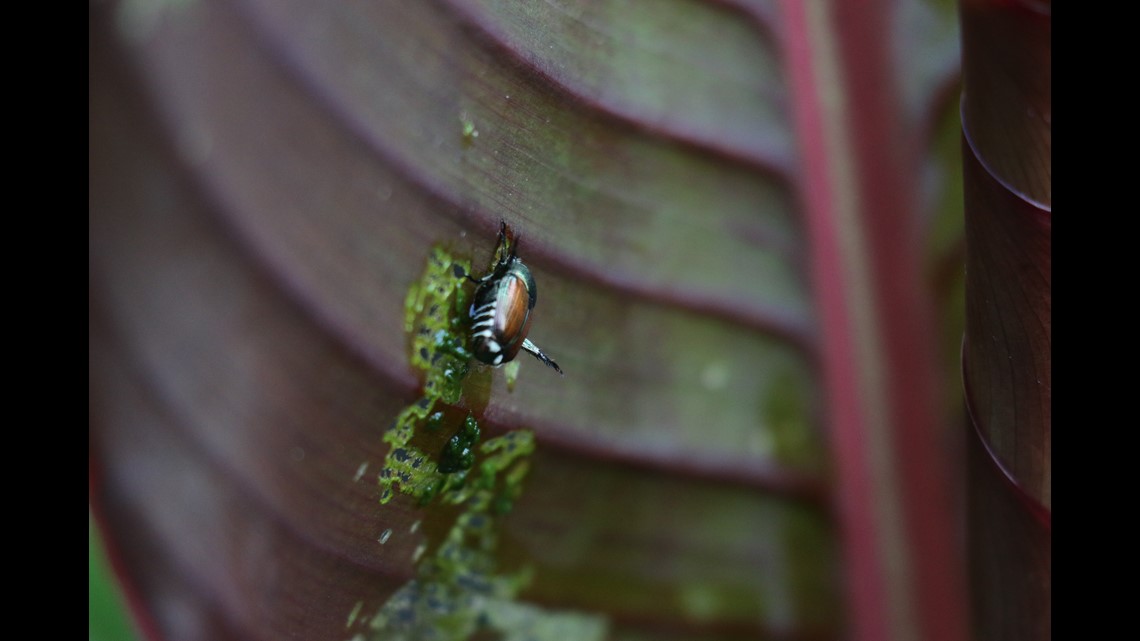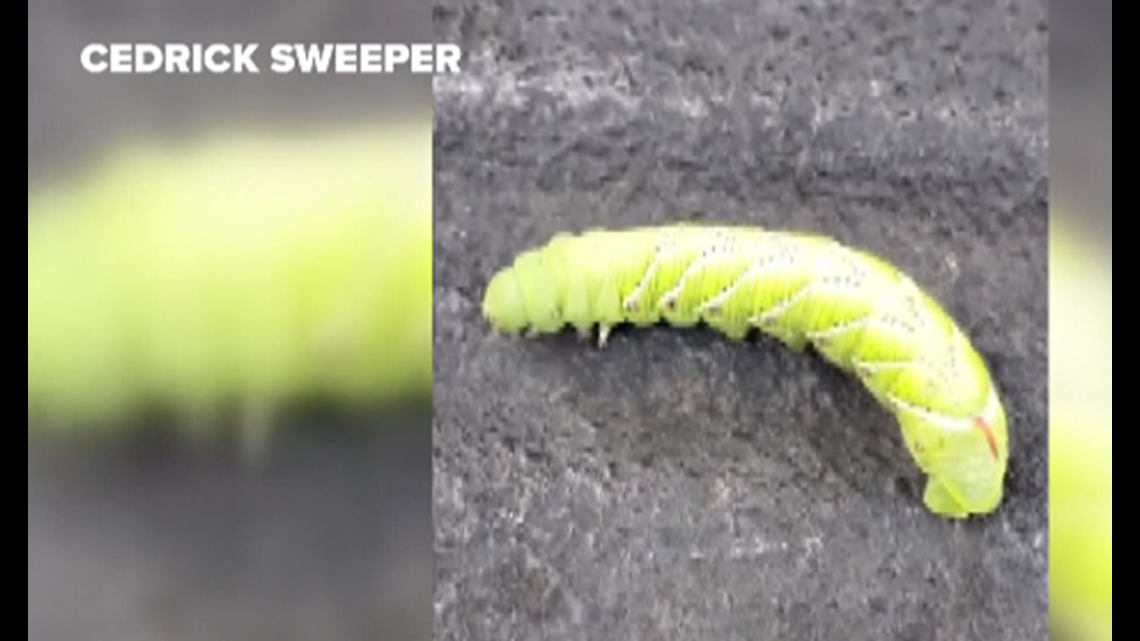COLUMBIA, S.C. — Garden pests are a part of life in gardens. In the heat of mid-summer bugs reach peak populations and plants are often stressed out from the hot weather. It’s often a fatal combination for some of our favorite greens. Some bugs are more common than others and there are ways to protect your most valuable plants.
Japanese Beetles
These non-native insects are easy to spot and often head to ornamental plants. Cannas are a favorite of Japanese beetles. Just a few beetles are enough to shred leaves in moments. They’re very destructive. Organic sprays against beetles use a bacteria that kills them as they eat. It will require several applications to get rid of them, but it could help protect your plants before damage is done. Once you see the beetles, they’re easy to pick off and squish, but it can be a daily chore.


Cabbage Worms
It turns out the heat wasn’t what did our broccoli plants in this summer, it was the bugs! Cabbage worms can destroy crops in just a few days. They acted so quickly that the only thing we could do was throw out the worst hit plants. Kale is also damaged by cabbage worms.
Tomato worms
These are also devastating to tomato crops. Tomato worms will dig a hole in your fruit and eat foliage. In mid-summer, tomatoes are often already struggling from heat and humidity issues, so an infestation of these worms can often finish a crop off. The good news is the worms can be hand picked off and that could be enough to save your plants. Usually one or 2 are the culprit for an entire plant’s downfall.


Leaf-footed bugs
They have shown up in huge numbers in Gandy’s Garden here at WLTX this year and seem to particularly like tomatoes. The bugs are sap suckers, but are more of a nuisance than a problem for the home gardener. These bugs will suck the juice from leaves and fruit often leaving discolored patches on fruit like tomatoes, but the fruit is still edible and tasty despite the damage. These can also be hand picked off, but when squished – they stink!
RELATED: How to pick the sweetest watermelon

